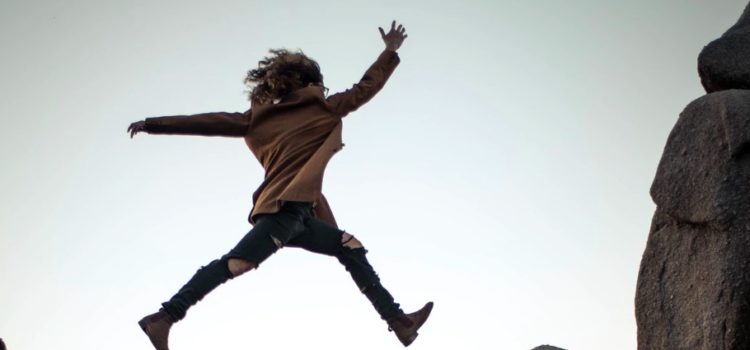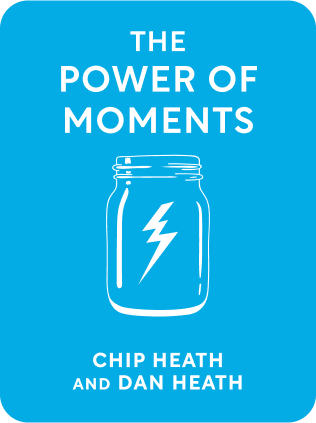

This article is an excerpt from the Shortform book guide to "The Power of Moments" by Chip Heath and Dan Heath. Shortform has the world's best summaries and analyses of books you should be reading.
Like this article? Sign up for a free trial here .
Why do people tend to withdraw and do nothing when they witness unjust or even violent behavior? How do you act when you witness unjust treatment?
Usually, when you see something wrong or unjust, you don’t react right away, or at all—most people don’t naturally know how to react to these situations. Without a specific planned response, we end up spending too much time deliberating what we should or could say or do, and miss the moment. To avoid decision paralysis in situations that call for courage, plan out exactly how you’d respond with “preloaded responses.”
Here is how preparing preloaded responses can help you act with courage when a situation calls for it.
Prepare Yourself Mentally for Courage
We feel a great deal of pride when we act with courage—when we stand up for someone else, call out injustice, or fight for something we believe in. These moments are meaningful because they show us what we’re made of.
The problem with these moments is that it’s very difficult to engineer situations that call on us to be courageous—they almost always happen spontaneously. However, you can practice and prepare yourself mentally to act courageously when it’s necessary.
The Heaths note that while you might not have any control over when opportunities to act with courage appear, you do have control over how you react to these opportunities.
(Shortform note: In their book Switch, the Heaths put a name to this phenomenon of clamming up when faced with the task of making a choice—decision paralysis. When presented with numerous options or ambiguity, humans are predisposed to conserving their mental energy by defaulting to whatever decision feels easiest or most familiar, or not doing anything at all.)
Preloaded responses are reactions that you’ve drilled into your memory so that they’re immediately ready in a situation that calls for it.
- For example, “When I see Bill and his friends mocking my sister at school, I will walk over, ask them to stop, and walk her to class. ”
While thinking of your preloaded responses, it’s helpful to reframe your thoughts away from, “What is the right thing to do?” This question forces you to deliberate between all the different “right” responses you could have. Instead, ask, “How can I get the right thing done?” This question asserts that you know what’s right and now must make it happen. It’s not a matter of what you should do, but what you will do.
Example: Speaking Up About Inappropriate Remarks
Imagine that your colleague makes a racially insensitive remark to another colleague. Without any practice, you’d likely be so caught off-guard that you’d do nothing at all in response. However, what if you’d had a preloaded response at the ready? “I know that Mary makes insensitive jokes to her friends about Julie. That’s not right and it won’t stop unless I bring it to HR. The next time I hear her make a remark like that, I’ll say ‘Mary, that’s a really inappropriate and disrespectful thing to say, and as it goes against our company values, I’ll be reporting you to HR.’” Chances are if you’d had this preloaded response prepared, you would have been primed to speak up the first time you heard your colleague making these types of remarks.
Preloaded Responses for Personal Moments of Courage
Asserting that you know the right thing to do and planning out how to make it happen can apply to smaller, very personal moments of courage as well. Doing the right thing and acting with integrity matters, even if you’re doing it just for yourself.
Perhaps you’re trying to cut down on drinking. The journey toward sobriety is full of situations that will call on your ability to do the right thing, and you can cut out the hesitation and temptation of these situations by creating preloaded responses.
First, remember to reframe your thoughts. You already know what the right thing to do is: avoiding situations that will tempt you to drink. Then, determine how you can do that. You identify your triggering scenarios and practice your actions: “When the waiter asks me what I would like to drink, I will say seltzer.” “When I am walking home after work, I will take the long way around the block to avoid walking in front of the bar.”

———End of Preview———
Like what you just read? Read the rest of the world's best book summary and analysis of Chip Heath and Dan Heath's "The Power of Moments" at Shortform .
Here's what you'll find in our full The Power of Moments summary :
- How to make everyday experiences meaningful and memorable
- A look at the four elements that create meaning
- How your senses can play a role in elevating everyday moments






